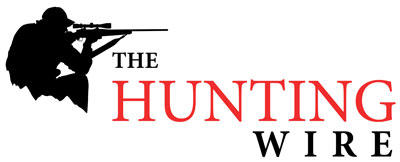If you hunt, you’re also a steward. It’s not optional. To keep chasing wild game in wild places, we must protect both.
In New Zealand, the Himalayan tahr faces a crisis. Population estimates peaked at 35,000 in the Southern Alps, far above the 10,000 target. The Department of Conservation responded with culls, approximately 12,000 tahr between 2019 and 2020, and an additional 7,000 more later.
The culls haven’t stopped rebounds in some areas, and meat and hides often go to waste. In one study area, the bull tahr population declined from 543 in 2019 to 141 by 2024; however, wide survey margins obscure the true impact.
That’s not conservation, it’s brute politics. In times like these, it’s clear that science and stewardship can easily get left behind, and as hunters, we must decide how to respond.
That’s why I support and am a member of the New Zealand Tahr Foundation (NZTF), and it’s why every serious hunter should find a conservation cause (or two), grab hold, and get involved.
The NZTF is fighting a different fight: seeking a Herd of Special Interest designation and pushing for science-driven management, where hunters help control populations and harvesting isn’t taboo. In supporting organizations like NZTF, we see that conservation can mean collaboration, not conflict. They aren’t anti-conservation, they’re pro-solutions.
But this isn’t just a tahr story; it’s a hunter’s story worldwide. Conservation and stewardship are themes that resonate throughout hunting communities worldwide.
In North America, organizations such as the Rocky Mountain Elk Foundation, the Wild Sheep Foundation, the Mule Deer Foundation, and the National Wild Turkey Federation collaborate with wildlife agencies to replenish elk, sheep, deer, and turkey populations.
For waterfowl and wetlands, groups like Delta Waterfowl and Ducks Unlimited reinvest millions into habitat restoration.
Hunters fund this through license sales, taxes, and dedication. Pittman-Robertson’s 11% excise tax raised nearly $1 billion for conservation in 2024 and $12.5 billion since 1939.
We can’t just pay our tag and walk away. The future of hunting doesn’t hinge on silence or sidelines. It depends on stewardship, on speaking up, on showing up.
Our call to action is simple and urgent: get informed, get involved, and speak out. Because the most important hunt you’ll ever take isn’t for a buck, a bear, or a bull. It’s for the future of wild game, wild places, and the hunting tradition itself.
Get informed. Know the science. Understand the issues.
Get involved. Join a group. Support a project. Show up in the field.
Get vocal. Advocate before emotion outweighs science, and policy drowns out stewardship.
If we don’t, someone else will, and we won’t like where it leads.
— Jay Pinsky
jay@theoutdoorwire.com
